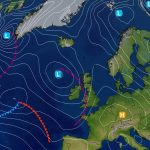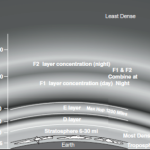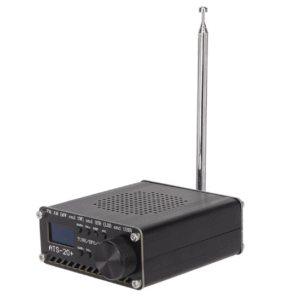Unlocking Clarity: The International Phonetic Alphabet for Radio Amateurs (IPA)
As used by the worlds military, radio amateurs and even dreaded call centres
In the world of radio communication, clarity reigns supreme. Whether you’re a seasoned ham operator or a curious newcomer, mastering the International Phonetic Alphabet (IPA) is essential. Let’s explore this linguistic toolkit, decode its secrets, and optimize your understanding.
1. What Is the International Phonetic Alphabet?
- The IPA, also known as the NATO or International Aviation alphabet, transcends borders and language barriers.
- Originally developed for aviation and military use, it found a cozy home among radio amateurs worldwide.
2. Why Use the IPA?
- Precision in Communication:
- When transmitting call signs, locations, or other critical information, clarity matters.
- The IPA ensures that letters are unmistakable, even in noisy or challenging conditions.
- Avoiding Confusion:
- Imagine deciphering “S” vs. “F” during a critical radio exchange. The IPA eliminates such confusion.
- “Bravo” instead of “B” prevents mix-ups with “D.”
3. The Phonetic Alphabet: A Quick Reference
Table
| Letter | Phonetic Pronunciation |
|---|---|
| A | Alpha |
| B | Bravo |
| C | Charlie |
| D | Delta |
| E | Echo |
| F | Foxtrot |
| G | Golf |
| H | Hotel |
| I | India |
| J | Juliett |
| K | Kilo |
| L | Lima |
| M | Mike |
| N | November |
| O | Oscar |
| P | Papa |
| Q | Quebec |
| R | Romeo |
| S | Sierra |
| T | Tango |
| U | Uniform |
| V | Victor |
| W | Whiskey |
| X | X-Ray |
| Y | Yankee |
| Z | Zulu |
4. Those Pesky Contesters!
Amateur radio contests are loved by some and hated by others, all contests come with very specific rules, however, there are always those people that will manipulate them to their own gain. These people will swap out the IPA standard for City or Country names in order to get other amateurs to work them instead of following the ‘Gentlemans’ rules. So a Simple call sign like “MM0ZIF” which should be called Mike Mike Zero Zulu India Foxtrot, might be called Mexico Mexico Zero Zanzibar India France. Hoping that the listener thinks that the rogue operator might be from a country or zone that they need to work.
6. Conclusion
Use the proper phonetics and people will understand you!
Tell us how can we improve this post?
Hi I am Marcus, MM0ZIF, a licenced Radio Amateur, Doctor of Musicology, amateur weather enthusiast. I over the years have been a Amateur Radio Tutor, Examiner, and a Regional Manager for the Radio Society of Great Britain.
This site is dedicated more towards Amateur Radio and Weather, with an angle on Technology too. I also maintain https://havenswell.com/ which is my other blog which is more aimed at cooking, hobbies and life in general as well as businness and networking.










